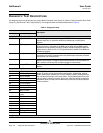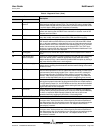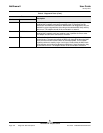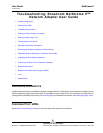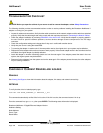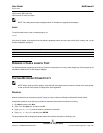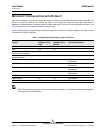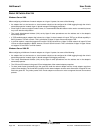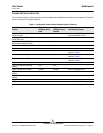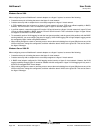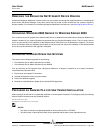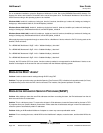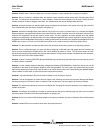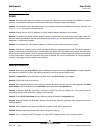
User Guide NetXtreme II
January 2010
Broadcom Corporation
Document ENGSRVT52-CDUM100-R Microsoft Virtualization with Hyper-V Page 239
MICROSOFT VIRTUALIZATION WITH HYPER-V
Microsoft Virtualization is a hypervisor virtualization system for Windows Server 2008 and Windows Server 2008 R2. This
section is intended for those who are familiar with Hyper-V, and it addresses issues that affect the configuration of
NetXtreme II network adapters and teamed network adapters when Hyper-V is used. For more information on Hyper-V, see
http://www.microsoft.com/windowsserver2008/en/us/hyperv.aspx.
Table 1 identifies Hyper-V supported features that are configurable for NetXtreme II network adapters. This table is not an
all-inclusive list of Hyper-V features.
NOTE: Ensure that Integrated Services, which is a component of Hyper-V, is installed in the guest operating system
(child partition) for full functionality.
Table 1: Configurable Network Adapter Hyper-V Features
Feature
Supported in
Windows Server
2008
Supported in
Windows Server
2008 R2
Comments/Limitation
IPv4 Yes Yes –
IPv6 Yes Yes –
IPv4 Large Send Offload (LSO)
(parent and child partition)
Yes Yes –
IPv4 Checksum Offload (CO) (parent
and child partition)
Yes Yes –
IPv4 TCP Offload Engine (TOE) No* Yes *When bound to a virtual network,
OS limitation.
IPv6 LSO (parent and child partition) No* Yes *When bound to a virtual network,
OS limitation.
IPv6 CO (parent and child partition) No* Yes *When bound to a virtual network,
OS limitation.
IPv6 TOE) No* Yes *When bound to a virtual network,
OS limitation.
iSCSI offload No* Yes *OS limitation.
Jumbo frames No* Yes *OS limitation.
RSS No No OS limitation.




